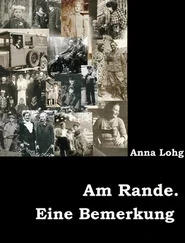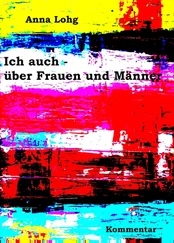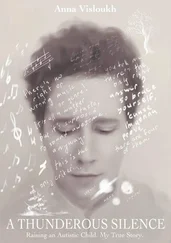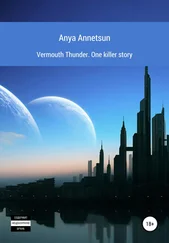“Haćhá  achid?”
achid?” [49] Are you okay?
a woman asks.
I smile, nod, and hope it’s the correct response.
My husband returns from outdoors. The women scatter when he draws near. He shakes his wet head. Water dots the earthen floor.
“It’s going to storm all day,” he says. “The path’s already deep with mud. Look at my feet.” He stomps and more water sprays around. Then he looks at me bundled up on the mat. “Come on, Anya, get up.”
I must tell him my news, but this isn’t how I thought it would be. When we spoke about starting our family, I had imagined this moment. We’d be before a roaring fireplace or pressed against each other in our bed at home, or maybe even sharing our morning tea, the sun slanting in the window and cutting across the polished wood floor when I told him. I imagined the surprise, then delight flooding his face. How he’d scoop me into his arms, maybe even twirl me around in a little dance before he realized he’d need to be more careful with me.
I see myself right now—huddled beneath a stained and smoke-scented blanket, surrounded by the quiet morning chatter of the many people with whom we share a house, rain thundering overhead, a small smoky fire valiantly trying to catch in the chilly air.
“What’s wrong?” He kneels at the mat’s edge. “What is it?”
I take his hand. He tries to pull it away, but I won’t let go. “I know what’s wrong with me. Why I feel so sick.”
“Well—tell me. What is it?”
I should be planning a nursery. New furniture. I should be stitching blouses, knitting small mittens, slippers, and caps. Blankets as soft as fur. I should be calling the midwife. Preparing for my confinement. Looking for a nursemaid. And my mother should be at my side, her hand brushing back the hair on my forehead; she’s the only one with the power to make this right.
“Anya?” He pales. “What?”
“Remember how you said you wanted a family?”
His hand tightens. He’s not breathing. “It’s impossible,” he says. “It can’t be.”
I nod and shrug.
“Oh my God,” he says. He tears his hand from mine. “Oh God.”
I think Nikolai Isaakovich has never really considered a family beyond it being something he would like to have one day. He never expected to receive this news in a place like this. He never expected he’d have to consider the future of a child when his own future is so beyond his control. Now everything has changed. His abstract idea has transformed into a reality. I put my hand back under the blanket.
“Anya—are you sure?”
“Yes,” I whisper. “You’re happy—aren’t you?”
“Yes! Very happy! Of course,” he cries. “I just—”
I close my eyes and feel the swell of tears.
“No,” he cries. “No, Anya, don’t. That’s wrong.” He grabs the blanket and finds the shape of my hand. He squeezes hard. “Don’t worry,” he says. “Anya, I’ll take care of you. I’ll take care of everything.”
The place inside that desperately needs reassurance accepts his words. Though I still long for my mother, he’s here now and whatever needs to be done, we’ll do it together.
That afternoon, I finally learn how bark is transformed into the soft fibres the koliuzhi weave into clothing and blankets. The folded slabs that have been soaking in salt water have been laid out on flat stones. The cord that held them in place has been discarded and each one is partially unfolded.
I work with a group of women from my house. Each of us has a little hammer that’s made from the porous inner bones of the whale—just as Makee had told me several weeks ago. My hammer is very light, but when I run my thumb along the ridges carved into its head, I feel how sturdy it is. With the hammers, we pound the bark against the flat rock. It grows flatter and flatter, and the ridges cut and separate it into strands. I don’t look up for fear I’ll strike my own fingers.
The pounding warms the bark, releasing the scent of potatoes and salt water. The strands become as supple as silk. I watch how the women position their bark, and I do the same. The strands fall away from my hammer onto my lap. I work my way up the strip of bark, and create threads as long as my hair, and then much longer. When I reach the top of my slab, and all the strands are detached, I follow the other women and twist the threads into skeins by winding them around my outstretched fingers until they are transformed into fibrous loops.
More than any other job the koliuzhi have given me, I’m able to perform this one well. The threads I’ve created feel just like silk embroidery threads, and the way they respond to the winding and tying is no different.
The women converse, voices raised so they may be heard above the sound of the pounding. I grow alert when from the corner of my eye I notice one woman glance in my direction as she’s speaking. Is she talking about me? Many of the women look, then go back to pounding the bark.
After a short time and a long time, my head aches with the constant thud of the hammers and the nearly shouted conversation. The nausea grows intense. I have to go. I drop my hammer and run.
Afterward, I stay on my knees behind the bushes, not sure if I’m finished. I lick some drops of water off a broad leaf and savour the sensation of the cool liquid in my sour mouth. What were the women saying about me? Did they understand why I ran away?
Then I hear shouting. One of the voices is my husband’s. I run back along the trail.
Outside the houses, my husband is in the centre of a circle of men, screaming at all of them. His arms are wrapped around a woolen blanket. It drags in the dirt. Nearby, the new bride—the moustached toyon’s daughter—is weeping while the women with whom I was shredding bark are trying to console her.
“Kolya,” I call, “what’s going on?”
“These savages,” he cries. “They’re trying to take my blanket.”
I look at the blanket. It’s white and has lines of blue and black trim running through it. There’s a pretty fringe along the edges. I’ve never seen it before. The eyebrow man tries to snatch it, but my husband turns his shoulder to the man and pulls it away.
“Where did you get it?”
“She gave it to me,” he cries, and points at the crying bride.
“What happened to our old blanket?”
“Nothing happened to our old blanket. But it’s old. It’s worn out. We need a new one.”
I look at the bride, leaning into the women, and sobbing. “But I think it’s her blanket.”
“Whose side are you on?” he spits. “I asked her. I told her I needed the blanket. For you. In your condition. She has lots of blankets.”
“Kolya—no,” I cry.
There’s been a terrible misunderstanding. Obviously, she has lots of blankets. She just married. The blanket’s a wedding present. Maybe it’s part of her dowry.
“She said yes,” he insists.
“She didn’t understand.”
“We need a new blanket. They have to give us a new blanket.”
He’s got to give it back. “Kolya—I don’t need a new blanket. I’m fine.”
He looks as if I’ve slapped him. “Well, what about the baby then? Are you thinking about the baby?”
I haven’t stopped thinking about the baby. Not for one second.
“Kolya, please. Give her back the blanket.”
The men have backed off, but they’re watching every move. The eyebrow man is breathing heavily. He’s coiled and could spring with the least provocation.
“Kolya!” I cry harshly.
Читать дальше
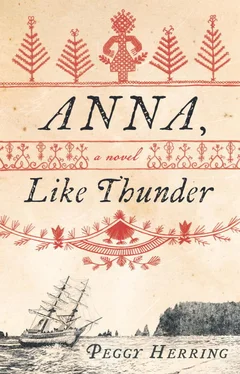
 achid?”
achid?” 

